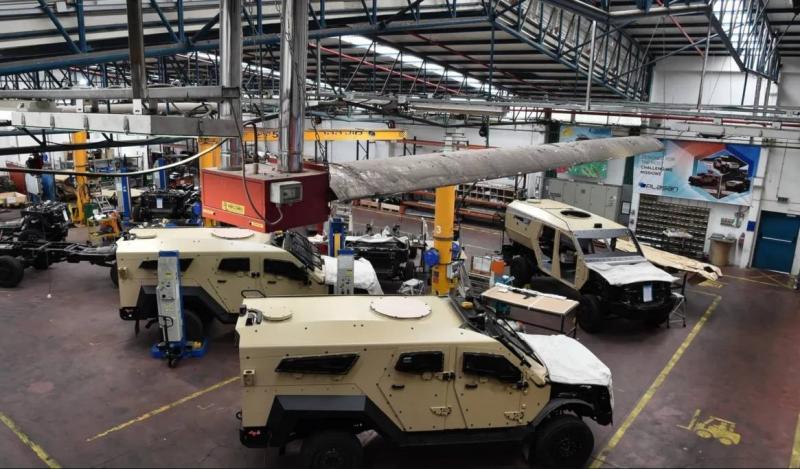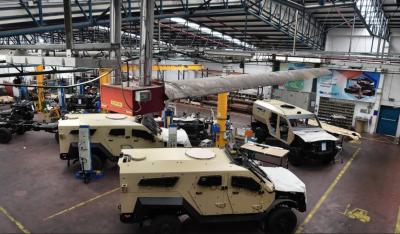Hezbollah announced today, Wednesday, that it targeted the "Plasan" military manufacturing plant in the "Sas'a" settlement with guided missiles, confirming direct hits. The party noted that this targeting is in response to the assassination carried out by the Israeli army in the southern town of Jouya, which resulted in the death of a prominent Hezbollah leader named Taleb Abdullah.
What is the "Plasan" Factory?
The Israeli armor manufacturing company "Plasan Sas'a" is located within "Kibbutz Sas'a," just two miles from the Lebanese border in the Upper Galilee region of occupied Palestine. The company was established as a cooperative in "Kibbutz Sas'a" in 1985 to produce solid plastic products, but quickly shifted its focus to designing and producing composite armor for the Israeli army. It has since become a major player both in Israel and globally in the field of vehicle protection and armoring.
In the late 1980s, the company started producing bomb disposal suits for the Israeli army and concentrated on armored vehicles when the first intifada broke out. In the 1990s, it developed protection for the Israeli army’s forces. By the end of the millennium, it also began protecting "Hummer" vehicles of the army occupying southern Lebanon, which faced constant threats from roadside bombs and improvised explosive devices.
By the early 2000s, the company was working directly with armored vehicle manufacturers both in Israel and abroad, in addition to manufacturing body armor and armor kits for the Israeli army. Among these companies were the American firms "Navistar Defense" and "Oshkosh Defense," with which Plasan collaborated to design and manufacture the "Kitted Hull" armor (a design and production process for a welded-free armored cabin) to address threats from roadside bombs against U.S. forces in Iraq and Afghanistan.
Today, the company operates as a full partner or contractor with Israeli firms such as "Elbit Systems" and "Raphael," as well as "Lockheed Martin" and others. The company has three business units: protection and survivability, vehicles, and a relatively new unit dealing with maneuvering robots. These units respond to military industry demands based on the evolving real needs of the Israeli army, varying combat conditions, and the nature of challenges it faces, as well as the constantly changing market, requiring the company to develop its systems.
Israel relies on its advanced military and security products, or “military technology,” which it claims is globally advanced in this field, to promote the importance of relations with it. Israel sells weapons and military security technology to many countries such as Azerbaijan, Nigeria, Argentina, and Finland, contributing to increasing its influence in the governments of these countries by having the ability to impact their security and military power.
For example, Plasan employs around 400 workers at its main factory in "Sas'a," has a subsidiary in the United States (Plasan North America), and also owns smaller companies in France and Greece. Israeli weapons are globally regarded as "combat-proven," a feature that Israeli military industries boast about compared to products from other countries that do not have the opportunity to test their weapons in real wars. Thus, wars and repeated assaults on Palestinians, in particular, provide opportunities for Israeli military manufacturing and development companies to test their weapons in real combat scenarios.




